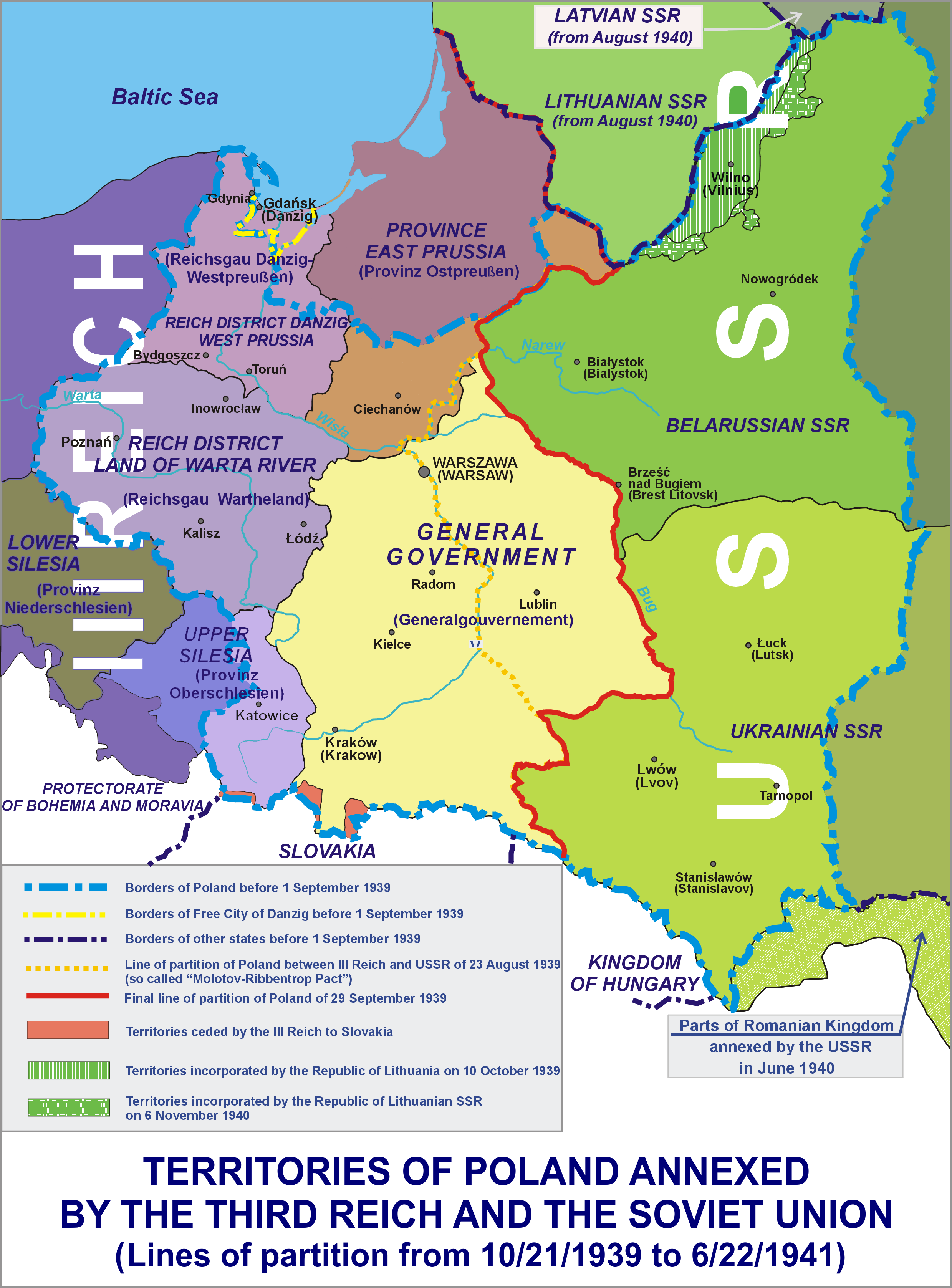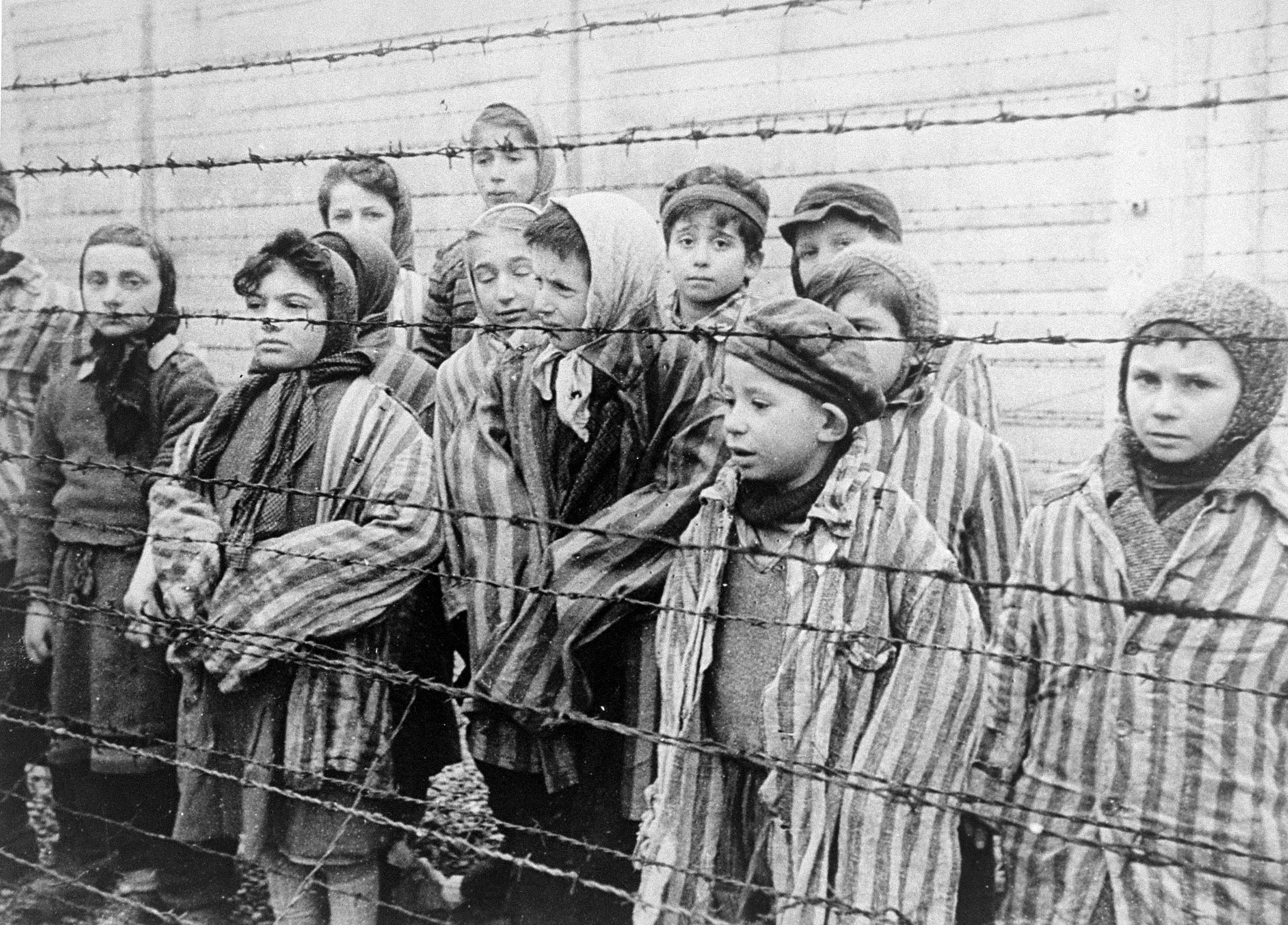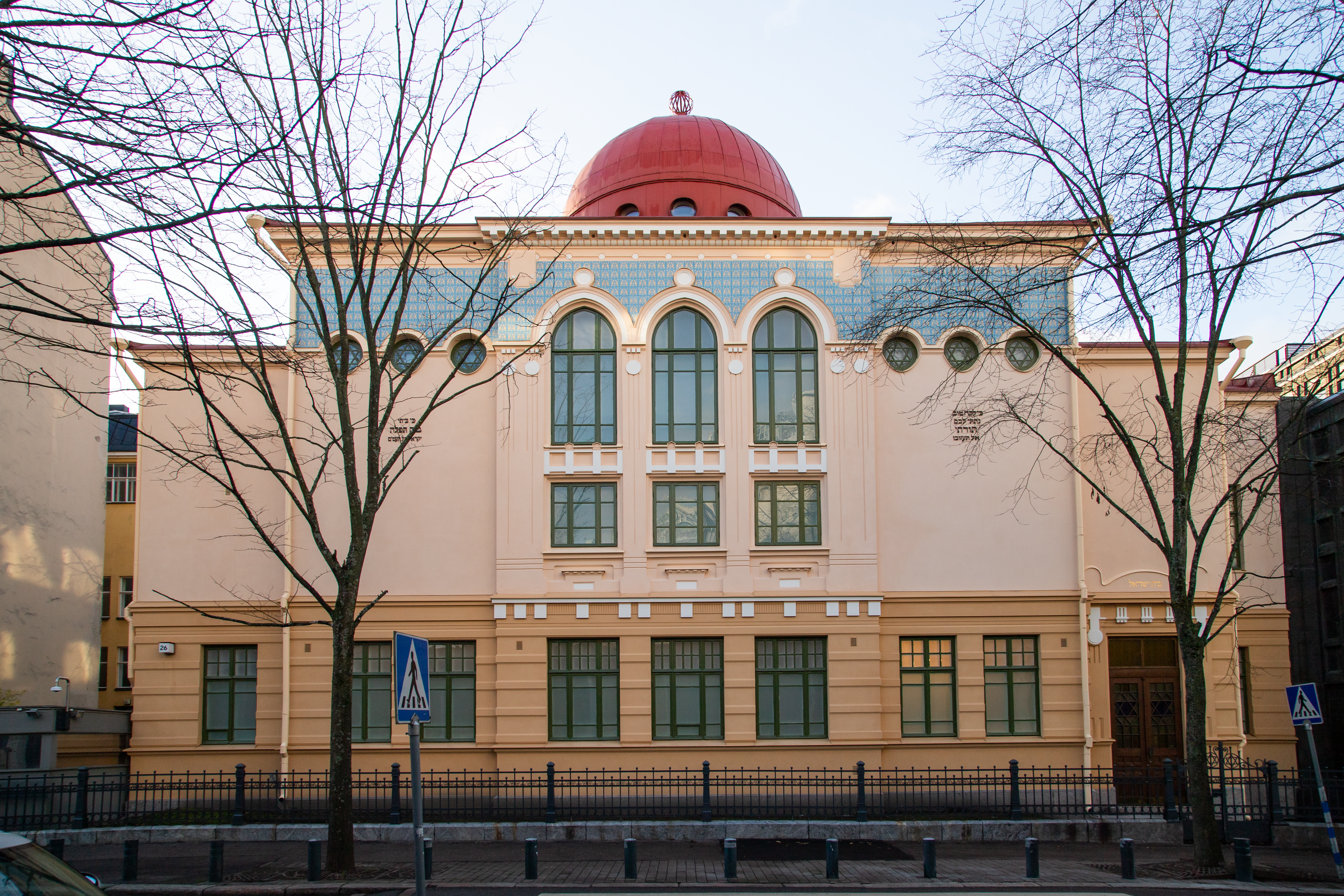|
Judenfrei
''Judenfrei'' (, "free of Jews") and ''judenrein'' (, "clean of Jews") are terms of Nazi origin to designate an area that has been " cleansed" of Jews during the Holocaust. While ''judenfrei'' refers merely to "freeing" an area of all of its Jewish inhabitants, the term ''judenrein'' (literally "clean of Jews") has the even stronger connotation that any trace of Jewish blood had been removed as an alleged impurity in the minds of the criminal perpetrators. These terms of racial discrimination and racial abuse are intrinsic to Nazi antisemitism and were used by the Nazis in Germany before World War II and in occupied countries such as Poland in 1939. ''Judenfrei'' describes the local Jewish population having been removed from a town, region, or country by forced evacuation during the Holocaust, though many Jews were hidden by local people. Removal methods included forced re-housing in Nazi ghettos especially in eastern Europe, and forced removal or resettlement to the East ... [...More Info...] [...Related Items...] OR: [Wikipedia] [Google] [Baidu] |
The Holocaust
The Holocaust (), known in Hebrew language, Hebrew as the (), was the genocide of History of the Jews in Europe, European Jews during World War II. From 1941 to 1945, Nazi Germany and Collaboration with Nazi Germany and Fascist Italy, its collaborators systematically murdered some six million Jews across German-occupied Europe, around two-thirds of Europe's Jewish population. The murders were carried out primarily through mass shootings and poison gas in extermination camps, chiefly Auschwitz concentration camp#Auschwitz II-Birkenau, Auschwitz-Birkenau, Treblinka extermination camp, Treblinka, Belzec extermination camp, Belzec, Sobibor extermination camp, Sobibor, and Chełmno extermination camp, Chełmno in Occupation of Poland (1939–1945), occupied Poland. Separate Nazi persecutions killed a similar or larger number of non-Jewish civilians and prisoners of war (POWs); the term ''Holocaust'' is sometimes used to include the murder and persecution of Victims of Nazi ... [...More Info...] [...Related Items...] OR: [Wikipedia] [Google] [Baidu] |
History Of The Jews In Alsace
The history of the Jews in Alsace is one of the oldest in Europe. It was first attested to in 1165 by Benjamin of Tudela, who wrote about a "large number of learned men" in " Astransbourg"; and it is assumed that it dates back to around the year 1000. Although Jewish life in Alsace was often disrupted by outbreaks of pogroms, at least during the Middle Ages, and reined in by harsh restrictions on business and movement, it has had a continuous existence ever since it was first recorded. At its peak, in 1870, the Jewish community of Alsace numbered 35,000 people. Language and origins The language traditionally spoken by the Jews of Alsace was a dialect of Yiddish, Judeo-Alsatian (), originally a mixture of Middle High German, Old Alsatian, Medieval Hebrew and Aramaic, and largely indistinguishable from Western Yiddish. From the 12th century onwards, due among other things to the influence of the nearby Rashi school, French linguistic elements were incorporated as well; and fro ... [...More Info...] [...Related Items...] OR: [Wikipedia] [Google] [Baidu] |
Glossary Of Nazi Germany
This is a list of words, terms, concepts and slogans of Nazi Germany used in the historiography covering the Nazi regime. Some words were coined by Adolf Hitler and other Nazi Party members. Other words and concepts were borrowed and appropriated, and other terms were already in use during the Weimar Republic. Finally, some are taken from Germany's cultural tradition. 0–9 * National Socialist Program, 25-point programme – The Nazi Party platform and a codification of its ideology. A * ''Abbeförderung'' ('dispatching', 'removal') – euphemism for killing. * ''abgeräumt'' ('cleared away') – slang expression for "murdered". * ''Abhörverbrecher'' ('wiretapping criminal') – Germans and others in the occupied countries who illegally listened to foreign news broadcasts. * ''Abkindern'' – an ironically intended colloquial designation for the cancellation of a marriage loan through the production of offspring. In German language, German, ''ab'' means "off" and ''Kind'' me ... [...More Info...] [...Related Items...] OR: [Wikipedia] [Google] [Baidu] |
Occupation Of Poland (1939–1945)
During World War II, Poland was occupied by Nazi Germany and the Soviet Union following the invasion in September 1939, and it was formally concluded with the defeat of Germany by the Allies in May 1945. Throughout the entire course of the occupation, the territory of Poland was divided between Nazi Germany and the Soviet Union (USSR), both of which intended to eradicate Poland's culture and subjugate its people. In the summer-autumn of 1941, the lands which were annexed by the Soviets were overrun by Germany in the course of the initially successful German attack on the USSR. After a few years of fighting, the Red Army drove the German forces out of the USSR and crossed into Poland from the rest of Central and Eastern Europe. Sociologist Tadeusz Piotrowski argues that both occupying powers were hostile to the existence of Poland's sovereignty, people, and the culture and aimed to destroy them. Before Operation Barbarossa, Germany and the Soviet Union coordinated th ... [...More Info...] [...Related Items...] OR: [Wikipedia] [Google] [Baidu] |
Bydgoszcz
Bydgoszcz is a city in northern Poland and the largest city in the historical region of Kuyavia. Straddling the confluence of the Vistula River and its bank (geography), left-bank tributary, the Brda (river), Brda, the strategic location of Bydgoszcz has made it an inland port and a vital centre for trade and transportation. With a city population of 339,053 as of December 2021, Bydgoszcz is the eighth-largest city in Poland. Today, it is the seat of Bydgoszcz County and one of the two capitals of the Kuyavian-Pomeranian Voivodeship as a seat of its centrally appointed governor, a voivode. Bydgoszcz metropolitan area comprising the city and several adjacent communities is inhabited by half a million people, and forms a part of an extended polycentric Bydgoszcz-Toruń metropolitan area with a population of approximately 0.8 million inhabitants. Since the Middle Ages, Bydgoszcz served as a Royal city in Polish–Lithuanian Commonwealth, royal city of the Crown of the Kingdom of Po ... [...More Info...] [...Related Items...] OR: [Wikipedia] [Google] [Baidu] |
Holocaust Survivors
Holocaust survivors are people who survived the Holocaust, defined as the persecution and attempted annihilation of the Jews by Nazi Germany and its collaborators before and during World War II in Europe and North Africa. There is no universally accepted definition of the term, and it has been applied variously to Jews who survived the war in German-occupied Europe or other Axis territories, as well as to those who fled to Allied and neutral countries before or during the war. In some cases, non-Jews who also experienced collective persecution under the Nazi regime are considered Holocaust survivors as well. The definition has evolved over time. Survivors of the Holocaust include those persecuted civilians who were still alive in the concentration camps when they were liberated at the end of the war, or those who had either survived as partisans or had been hidden with the assistance of non-Jews, or had escaped to territories beyond the control of the Nazis before the Fina ... [...More Info...] [...Related Items...] OR: [Wikipedia] [Google] [Baidu] |
Synagogue
A synagogue, also called a shul or a temple, is a place of worship for Jews and Samaritans. It is a place for prayer (the main sanctuary and sometimes smaller chapels) where Jews attend religious services or special ceremonies such as weddings, bar and bat mitzvahs, choir performances, and children's plays. They often also have rooms for study, social halls, administrative and charitable offices, classrooms for religious and Hebrew studies, and many places to sit and congregate. They often display commemorative, historic, or modern artwork alongside items of Jewish historical significance or history about the synagogue itself. Synagogues are buildings used for Jewish prayer, study, assembly, and reading of the Torah. The Torah (Pentateuch or Five Books of Moses) is traditionally read in its entirety over a period of a year in weekly portions during services, or in some synagogues on a triennial cycle. However, the edifice of a synagogue as such is not essential for hol ... [...More Info...] [...Related Items...] OR: [Wikipedia] [Google] [Baidu] |
Kristallnacht
( ) or the Night of Broken Glass, also called the November pogrom(s) (, ), was a pogrom against Jews carried out by the Nazi Party's (SA) and (SS) paramilitary forces along with some participation from the Hitler Youth and German civilians throughout Nazi Germany on 9–10 November 1938. The German authorities looked on without intervening.German Mobs' Vengeance on Jews", ''The Daily Telegraph'', 11 November 1938, cited in The euphemistic name comes from the shards of broken glass that littered the streets after the windows of Jewish-owned stores, buildings, and synagogues were smashed. The pretext for the attacks was the assassination, on 9 November 1938, of the German diplomat Ernst vom Rath by Herschel Grynszpan, a 17-year-old German-born Polish Jew living in Paris. Jewish homes, hospitals and schools were ransacked as attackers demolished buildings with sledgehammers. Rioters destroyed over 1,400 synagogues and prayer rooms throughout Germany, Austria, and the Su ... [...More Info...] [...Related Items...] OR: [Wikipedia] [Google] [Baidu] |
Berlin
Berlin ( ; ) is the Capital of Germany, capital and largest city of Germany, by both area and List of cities in Germany by population, population. With 3.7 million inhabitants, it has the List of cities in the European Union by population within city limits, highest population within its city limits of any city in the European Union. The city is also one of the states of Germany, being the List of German states by area, third smallest state in the country by area. Berlin is surrounded by the state of Brandenburg, and Brandenburg's capital Potsdam is nearby. The urban area of Berlin has a population of over 4.6 million and is therefore the most populous urban area in Germany. The Berlin/Brandenburg Metropolitan Region, Berlin-Brandenburg capital region has around 6.2 million inhabitants and is Germany's second-largest metropolitan region after the Rhine-Ruhr region, as well as the List of EU metropolitan areas by GDP, fifth-biggest metropolitan region by GDP in the European Union. ... [...More Info...] [...Related Items...] OR: [Wikipedia] [Google] [Baidu] |
:Category:German Words And Phrases
{{CatAutoTOC, numerals=no Words and phrases A word is a basic element of language that carries meaning, can be used on its own, and is uninterruptible. Despite the fact that language speakers often have an intuitive grasp of what a word is, there is no consensus among linguists on its d ... Germanic words and phrases Words and phrases by language la:Categoria:Verba Theodisca ... [...More Info...] [...Related Items...] OR: [Wikipedia] [Google] [Baidu] |
Gelnhausen
Gelnhausen () is a town, and the capital of the Main-Kinzig-Kreis, in Hesse, Germany. It is located approximately 40 kilometers east of Frankfurt am Main, between the Vogelsberg mountains and the Spessart range at the river Kinzig (Main), Kinzig. It is one of the eleven towns (urban municipalities) in the district. Gelnhausen has around 22,000 inhabitants. History Gelnhausen is located on the German Fairy Tale Route, a tourist route, and nicknamed "Barbarossa city, Barbarossastadt". The Imperial Palace, Gelnhausen, Imperial Palace Gelnhausen was founded by Frederick I, Holy Roman Emperor, Emperor Frederick Barbarossa between 1169 and 1170 because the Gelnhausen settlements were at the intersection of the Via Regia trade road. Gelnhausen received German town law, town privileges. The emperor also granted market town, trade privileges like the staple right which forced traveling merchants to offer their goods in the town for three days. In 1180 the Gelnhausen Act was passed a ... [...More Info...] [...Related Items...] OR: [Wikipedia] [Google] [Baidu] |







